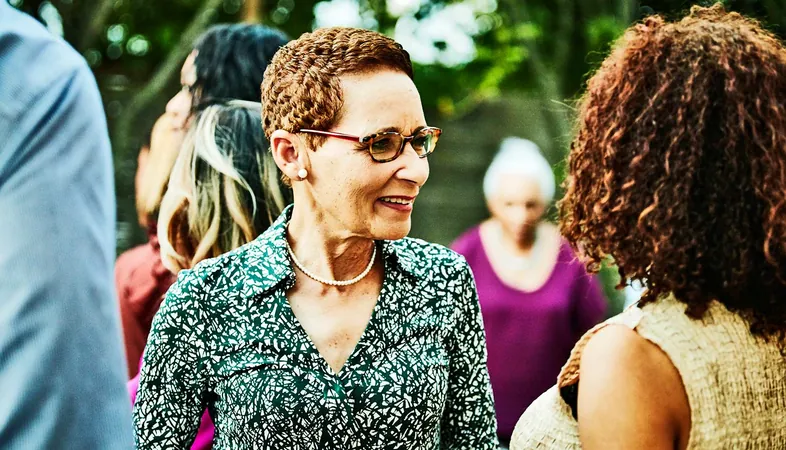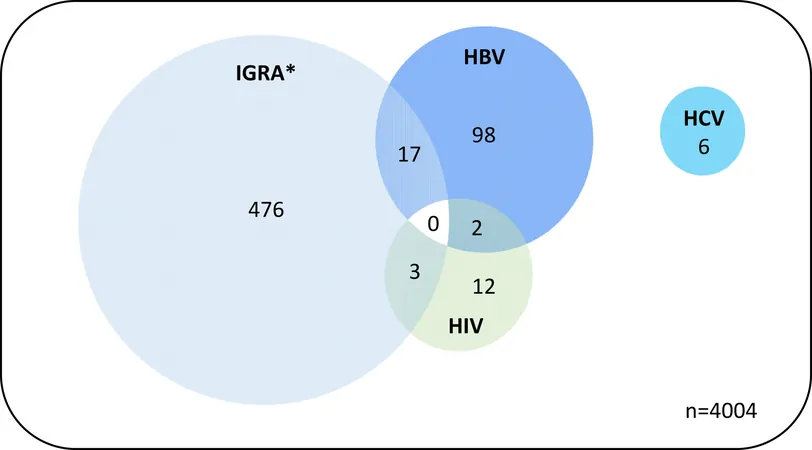
Revolutionary Algorithm Set to Transform Hearing Aids and Combat the ‘Cocktail Party Problem’
2025-04-28
Author: Yu
A Breakthrough in Hearing Technology
Imagine being at a lively gathering, voices swirling around you, trying to engage in a meaningful conversation while background chatter becomes an overwhelming jumble. For many with hearing loss, this scenario—dubbed the ‘cocktail party problem’—is a daily struggle. But researchers at Boston University may have stumbled upon a game-changing solution.
The Cutting-Edge Algorithm: Meet BOSSA
Introducing BOSSA—the Biologically Oriented Sound Segregation Algorithm—a revolutionary brain-inspired design that enhances the ability of hearing aids to filter out noise and focus on individual voices. Testing revealed that this innovative algorithm could boost word recognition accuracy by a staggering 40 percentage points compared to current hearing aid technologies, leaving researchers astonished by such significant progress.
A Growing Challenge: Attention on Hearing Loss
With approximately 50 million Americans affected by hearing loss and predictions suggesting that over 2.5 billion people globally may face similar challenges by 2050, the need for effective communication tools has never been more pressing. According to co-author Virginia Best, many individuals with hearing impairments find it exceedingly difficult to engage in conversations within noisy environments—a reality that permeates social gatherings, dinner tables, and work meetings.
Rethinking Noise Reduction
The research team compared the new BOSSA algorithm against industry-standard algorithms already present in hearing aids, which often fail to improve performance or even degrade it. Sen explained that their findings confirm long-standing observations reported by users, highlighting the necessity for innovation in the field.
Commercial Prospects Amid Competition
With tech giants like Apple entering the hearing aid market, it’s essential for existing companies to evolve rapidly or risk falling behind. Sen has patented the BOSSA technology and is eager to collaborate with manufacturers who recognize its potential.
Decoding Sound: Insights from the Brain
For over two decades, Sen has delved into the neural circuits that process sound, seeking to uncover how the brain navigates complicated auditory environments. This research underscores a fundamental mechanism: inhibitory neurons that help filter unwanted sounds, akin to a form of internal noise cancellation.
Real-World Testing and Future Applications
The researchers conducted extensive testing with young adults experiencing sensorineural hearing loss, utilizing headphones to simulate real-world situations. Results revealed that the BOSSA algorithm significantly improved the ability to discern individual speakers amid noise. They’ve also begun developing an advanced version that incorporates eye-tracking technology to further refine auditory focus.
Beyond Hearing Loss: Broader Implications
Sen believes the principles behind the BOSSA algorithm could extend beyond hearing assistance. The same neural circuits responsible for distinguishing sounds play a crucial role in attention—a concept that could be beneficial for individuals with ADHD or autism, who also face challenges in complex auditory environments.
In Conclusion: A New Era for Hearing Aids
With findings published in Communications Engineering, the Boston University team’s work heralds a promising future for hearing technologies, empowering millions to reclaim their ability to engage in conversations without the frustration of background noise. The race is on to integrate these advancements into user-friendly devices that transform communication for those with hearing loss.




 Brasil (PT)
Brasil (PT)
 Canada (EN)
Canada (EN)
 Chile (ES)
Chile (ES)
 Česko (CS)
Česko (CS)
 대한민국 (KO)
대한민국 (KO)
 España (ES)
España (ES)
 France (FR)
France (FR)
 Hong Kong (EN)
Hong Kong (EN)
 Italia (IT)
Italia (IT)
 日本 (JA)
日本 (JA)
 Magyarország (HU)
Magyarország (HU)
 Norge (NO)
Norge (NO)
 Polska (PL)
Polska (PL)
 Schweiz (DE)
Schweiz (DE)
 Singapore (EN)
Singapore (EN)
 Sverige (SV)
Sverige (SV)
 Suomi (FI)
Suomi (FI)
 Türkiye (TR)
Türkiye (TR)
 الإمارات العربية المتحدة (AR)
الإمارات العربية المتحدة (AR)